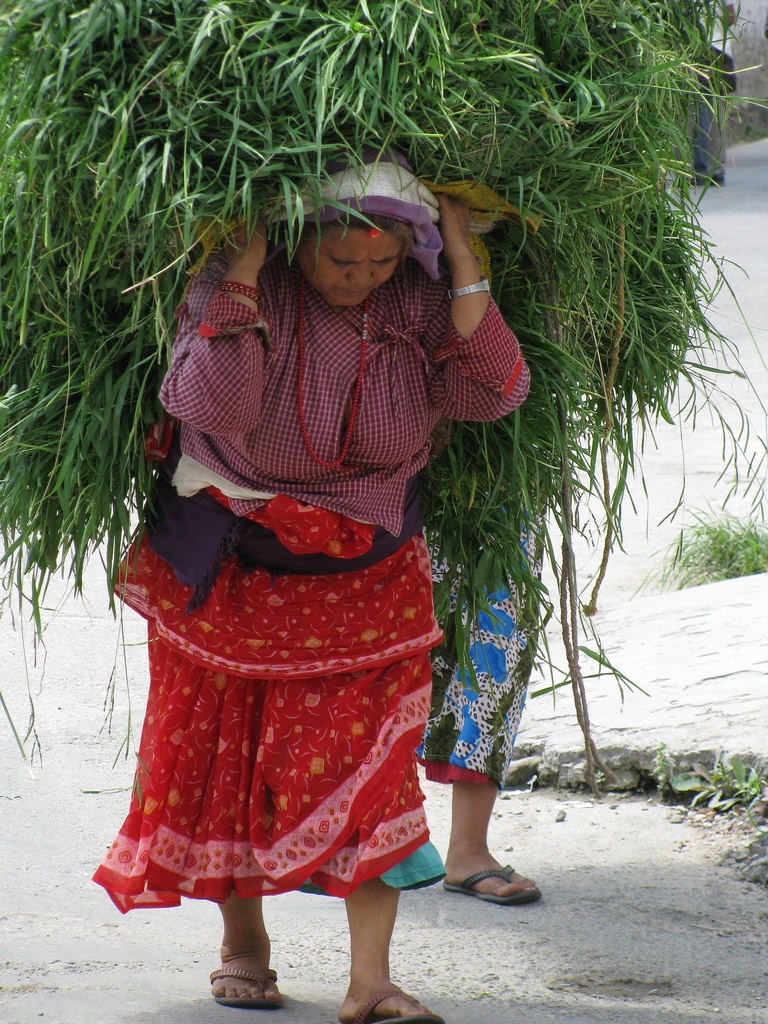 The WRRP team in Surkhet is doing a fantastic job combating gender discrimination. I am extremely humbled to join this team of passionate individuals standing up for women’s rights. They are taking a multidimensional approach to educate both boys and girls in schools around Nepal about reproductive rights, child marriage and raise awareness about uterine prolapse (UP) aka fallen womb. In Nepal, it is estimated that around 600,000 women are dealing with UP. Fallen Womb is a condition in which the weakening of the pelvic muscle causes the uterus to come towards the vagina, eventually hanging out of the vagina completely.
The WRRP team in Surkhet is doing a fantastic job combating gender discrimination. I am extremely humbled to join this team of passionate individuals standing up for women’s rights. They are taking a multidimensional approach to educate both boys and girls in schools around Nepal about reproductive rights, child marriage and raise awareness about uterine prolapse (UP) aka fallen womb. In Nepal, it is estimated that around 600,000 women are dealing with UP. Fallen Womb is a condition in which the weakening of the pelvic muscle causes the uterus to come towards the vagina, eventually hanging out of the vagina completely.
The program coordinator mentioned that the cause of uterine prolapse is the consequence of discrimination of women in schools, homes or in the community simply because of their gender. As a result, they do not have any right to make choices about their lives or their reproductive health. WRRP believes that UP is not just a medical issue but a women’s right issue. Therefore, they have taken the issue of UP as a gateway to address gender inequality.
 In Nepal, it is often the women who work from the time they get up in the morning until they go to sleep in the evening. They have to do all of the household chores, carry heavy loads of manure, gather fodder, firewood and fetch water. These women continue to toil hard even when they are pregnant, barely getting rest or time to recover after giving birth.
In Nepal, it is often the women who work from the time they get up in the morning until they go to sleep in the evening. They have to do all of the household chores, carry heavy loads of manure, gather fodder, firewood and fetch water. These women continue to toil hard even when they are pregnant, barely getting rest or time to recover after giving birth.
Women think that they can handle the heavy work load after just 10-12 days of giving birth, which leads to various health problems like UP. It is not only the adult women who suffer, girls as young as 13 are suffering from the condition as well. Young girls are extremely vulnerable here because of child marriage. Girls are married off, sometimes even before they start menstruation and have many children at a young age.
Once the condition of UP develops, it causes an unrelenting amount of constant pain and suffering. It is not easy for a woman to share the fact that she is suffering from this condition because talking about reproductive health in any capacity is a taboo subject in Nepal. The community they live in despises women who speak up about their condition. This is a direct result of the patriarchal structure of Nepal’s society.
The problem will continue to occur if projects like WRRP do not address reproductive rights and gender discrimination with the population here. Ensuring that women and girls are educated on the subject and can make informed choices without coercion about menstruation, marriage and reproduction will help lead to a decrease in uterine prolapse as a result.
Posted By Dorothy Khan (Nepal)
Posted Jun 15th, 2016



5 Comments
Rita
July 7, 2016
Great information on uterine prolapse and the challenges that many women in Nepal are facing. Look forward to reading more about WRRP’s works.
Catalina Cielo
October 4, 2016
Wow! Thank you for this information. That sounds unbelievably painful and important to help fix.